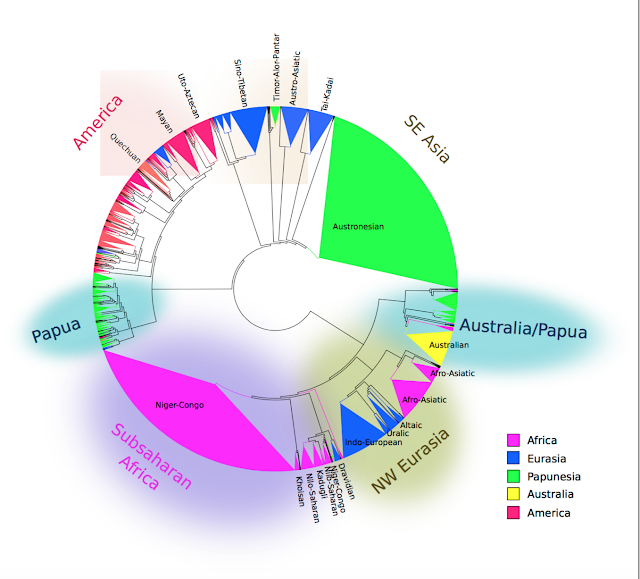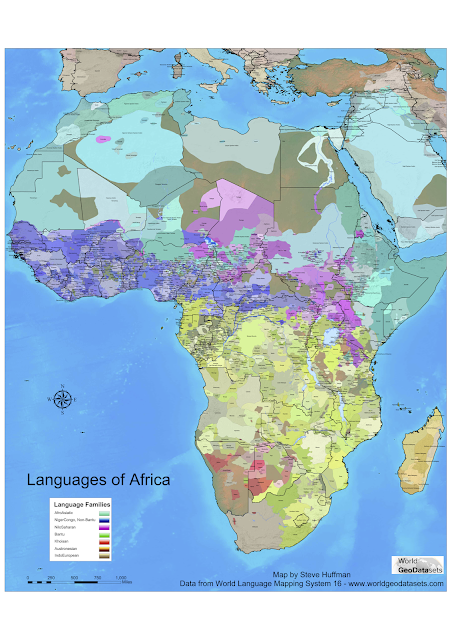Akan and #lingwiki: a typical example of misinformation
I'm editing some wikipedia articles on Akan and neighbouring languages and dialects, as a part of #lingwiki. Wikipedia editing is fun, easy and you should do it too. Don't be scared, there's lots of help - you are not the first beginner of wikipedia editing.
If you just search for "Akan" on wikipedia you get to a disambiguation page where they list several articles matching that search. There you find a link to the pages on Kwa languages and on Central Tano languages. That's relevant, as the Akan language is a part of those higher level groupings. However, it is not a good idea to have them both be described as "a stock of dialects spoken by the Akan people".
Now, of course. In some sense all languages are collections of dialects - heck they're all collections of idiolects. But... Kwa is a really, really large group. Central Tano (which is part of Kwa) even includes another subgrouping, Akanic, which in its turn includes a macro language (according to Ethnologue and the ISO standards), Akan, which in its turn is divided up by the ISO 639-3 into two languages, Twi and Fante.
Even if theoretically languages are all made up of smaller units, this is not how we typically described such high level groupings. It's like calling Romance languages a collection of dialects, it hardly seems like the appropriate level of description. I googled "wikipedia" and "a stock of dialects". It basically only gives hits for languages related to Akan and the information has spread far.
I changed it, it now read "language group which includes Akan". It might not be the best description, but since it's a disambiguation page for articles related to the search term "Akan" I saw it as ok.
There is a tendency for languages of areas less known to westerners to be lumped together as "dialects" even when they show a similar degree of mutual intelligibility and shared lexicon as varieties that we wouldn't hesitate calling different languages. Differences in language varieties we know better is sometimes valued as more critical than differences between varieties that we are less familiar with.
We probably cannot get at the perfect identification and classification of all languages, but we can at least try and be consistent. It makes for better research and better treatment of all people.
I hadn't noticed this if it wasn't for #lingwiki. In the future I'm going to spend more time in the section for linguistics articles that need expanding and correcting.
p.s. I'm not even going to get into the discussing of wether "Kwa" is a good grouping or not. A lot of fair criticism has been launched at that analysis, that the languages most often included in Kwa are not related enough or that they are similar due to contact not genealogy.
If you just search for "Akan" on wikipedia you get to a disambiguation page where they list several articles matching that search. There you find a link to the pages on Kwa languages and on Central Tano languages. That's relevant, as the Akan language is a part of those higher level groupings. However, it is not a good idea to have them both be described as "a stock of dialects spoken by the Akan people".
Now, of course. In some sense all languages are collections of dialects - heck they're all collections of idiolects. But... Kwa is a really, really large group. Central Tano (which is part of Kwa) even includes another subgrouping, Akanic, which in its turn includes a macro language (according to Ethnologue and the ISO standards), Akan, which in its turn is divided up by the ISO 639-3 into two languages, Twi and Fante.
Even if theoretically languages are all made up of smaller units, this is not how we typically described such high level groupings. It's like calling Romance languages a collection of dialects, it hardly seems like the appropriate level of description. I googled "wikipedia" and "a stock of dialects". It basically only gives hits for languages related to Akan and the information has spread far.
I changed it, it now read "language group which includes Akan". It might not be the best description, but since it's a disambiguation page for articles related to the search term "Akan" I saw it as ok.
There is a tendency for languages of areas less known to westerners to be lumped together as "dialects" even when they show a similar degree of mutual intelligibility and shared lexicon as varieties that we wouldn't hesitate calling different languages. Differences in language varieties we know better is sometimes valued as more critical than differences between varieties that we are less familiar with.
We probably cannot get at the perfect identification and classification of all languages, but we can at least try and be consistent. It makes for better research and better treatment of all people.
I hadn't noticed this if it wasn't for #lingwiki. In the future I'm going to spend more time in the section for linguistics articles that need expanding and correcting.
p.s. I'm not even going to get into the discussing of wether "Kwa" is a good grouping or not. A lot of fair criticism has been launched at that analysis, that the languages most often included in Kwa are not related enough or that they are similar due to contact not genealogy.



Comments
Post a Comment